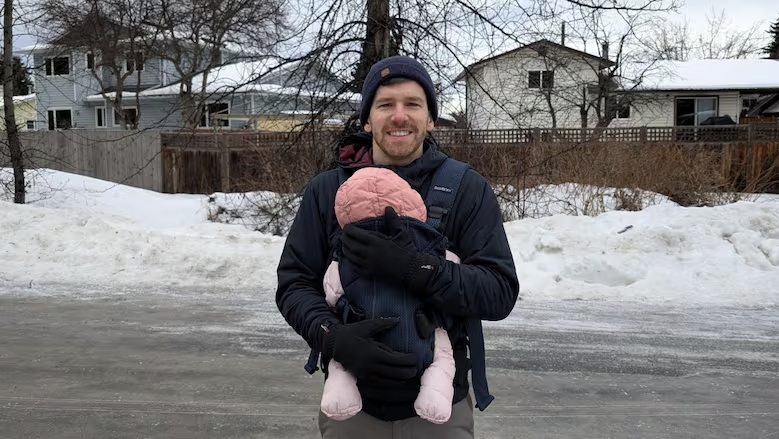Northern B.C. Doctor Urges Universal Access to RSV Shots for Infants
Sarah Desjardins
1/20/20252 min read


When Dr. Patrick Hemmons’s daughter Saoirse was born prematurely last year, he wanted to shield her from the upcoming respiratory virus season. But nirsevimab, a monoclonal antibody approved by Health Canada to protect infants from respiratory syncytial virus (RSV), wasn’t available to her in British Columbia.
Instead, Hemmons had to fly from northern B.C. to Vancouver, then drive to Seattle to obtain the dose, a situation he called “a hassle” and a glaring example of inequity.
“It’s kind of a shame that families across Canada don’t have universal access to something recommended for all infants by Health Canada,” Hemmons said.
RSV: A Serious Threat to Infants
RSV is usually a mild illness but can cause severe respiratory issues in vulnerable groups, including infants and the elderly. The virus is particularly dangerous for babies during their first months of life when it can progress from upper respiratory infections to lung complications.
Nirsevimab, sold as Beyfortus in Canada, has been shown to reduce medically attended RSV infections by 80% in healthy infants. Despite this, the National Advisory Committee on Immunization (NACI) recommended prioritizing high-risk infants due to the $952 per-dose cost, delaying universal implementation.
“It’s a safe and effective product, but we need to ensure it’s cost-effective to roll out universally,” said Dr. Jesse Papenburg, a pediatric infectious disease specialist.
Current Coverage in B.C.
B.C.’s Infant RSV Immunoprophylaxis Program provides nirsevimab only to high-risk infants and those in select remote communities. However, Hemmons says the criteria exclude families in rural areas like Fraser Lake and Saik’uz, where he practises.
“Fraser Lake doesn’t qualify as remote, despite being 158 kilometers from Prince George with fewer than 1,000 residents, while larger communities like Kitimat are considered remote,” Hemmons explained.
The B.C. Ministry of Health cited limited supply as the reason for the program’s current scope.
Inequities and the Need for Expansion
Hemmons highlighted the inequities faced by families in rural areas who don’t qualify for the antibody despite significant logistical and medical challenges in accessing care for RSV infections.
“More needs to be done to address this inequity as soon as possible,” he said, calling for the province to expand access to nirsevimab to all infants.
Other provinces, including Ontario and Quebec, already provide nirsevimab universally for free.
Future Hopes
Experts, including Papenburg, hope for broader availability of nirsevimab in the coming years.
“RSV is the leading cause of hospitalization in Canada during the first year of life,” he said. “To make this widely available, cost-effectiveness is key.”
For Hemmons, ensuring access is not just about his own family but about addressing broader gaps in care for Canadian infants.
“We need to do better for families across the country.”
News
Stay updated with the latest BC news stories, subscribe to our newsletter today.
SUBSCRIBE
© 2025 Innovatory Labs Inc.. All rights reserved.
LINKS
